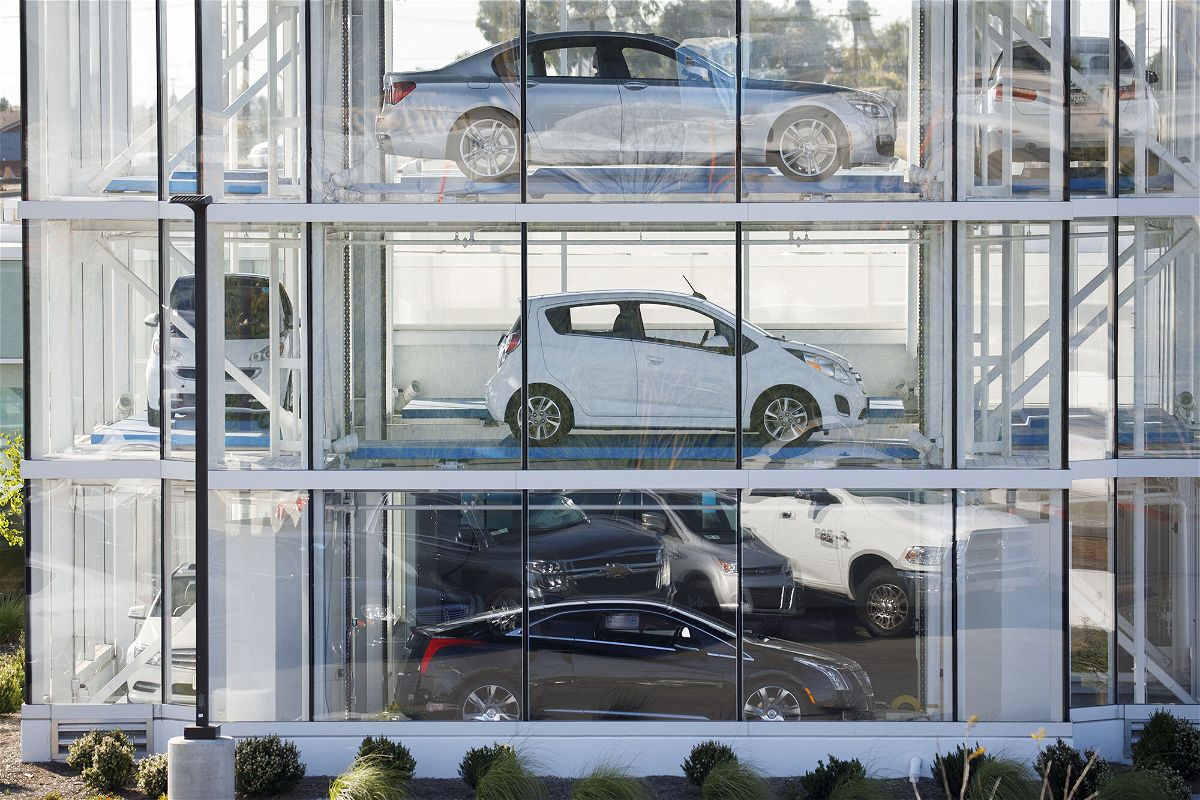Carvana stock plummets as used car prices fall

Vehicles sit inside a Carvana Co. car vending machine in Westminster
By Jennifer Korn
Shares of used car marketplace Carvana continued to plummet Monday, falling over 50% over the past two trading days, following a volatile downward trend that began after the company shared third-quarter results Thursday.
Shares dropped 15% Monday to close the day at $7.39 a share, continuing a downward trajectory that began on Friday, when the company posted its worst-ever one-day performance, dropping 39%. The plunge began following disappointing earnings due to lower-than-expected sales. Morgan Stanley analyst Adam Jonas on Friday pulled his $68 price target and said Carvana (CVNA) could be worth as little as $1 per share, citing the poor used-car market and volatile financial systems that “add material risk to the outlook.” Jonas’ replaced his earlier target with a base range of $1 to $40 per share.
The continued rapid fall prompted brief halts in trading through Monday morning due to market volatility.
Carvana’s fall indicates a wider trend in the used car sector, as car prices that have been elevated fall due to rising interest rates and talk of recession. This could mean that the cars Carvana purchased in the past few months could soon be worth less than what the company anticipated.
Trouble for the used car world started months ago, with car prices getting so high that many customers were priced out. Shares of CarMax (KMX), the nation’s largest used car dealer, are down 50% since the start of the year. After a poor performance in September, the company blamed “vehicle affordability challenges that stem from widespread inflationary pressures, as well as climbing interest rates and low consumer confidence.”
Car prices had been climbing steadily for the last two years, helping to fuel Carvana’s growth, as a shortage of parts, particularly computer chips, limited supply of new cars at a time when consumer demand for vehicles was particularly strong. Those higher prices play a major factor in overall inflationary pressures, as roughly 40% of US households buy a car each year.
The effort to curb prices has prompted the Federal Reserve to raise interest rates at an historic pace in recent months as the central bank tries to ease consumer demand and slow the economy. Automotive sales are especially sensitive to a rise in interest rates, as many car purchases are financed by consumers.
The result has been that used car prices have declined 10.6% compared to a year ago, according to the Manheim Used Vehicle Value Index, which tracks average used car prices.
Now, used car companies like Carvana are dealing with the decline.
“We were always going to have to traverse difficult periods and cycles on our way to fulfilling our mission,” the company wrote in its letter to shareholders last week. “On the other side of this period, we plan to be a better company as a result of having gone through it.”
The-CNN-Wire
™ & © 2022 Cable News Network, Inc., a Warner Bros. Discovery Company. All rights reserved.
CNN’s Chris Isidore contributed to this report.
